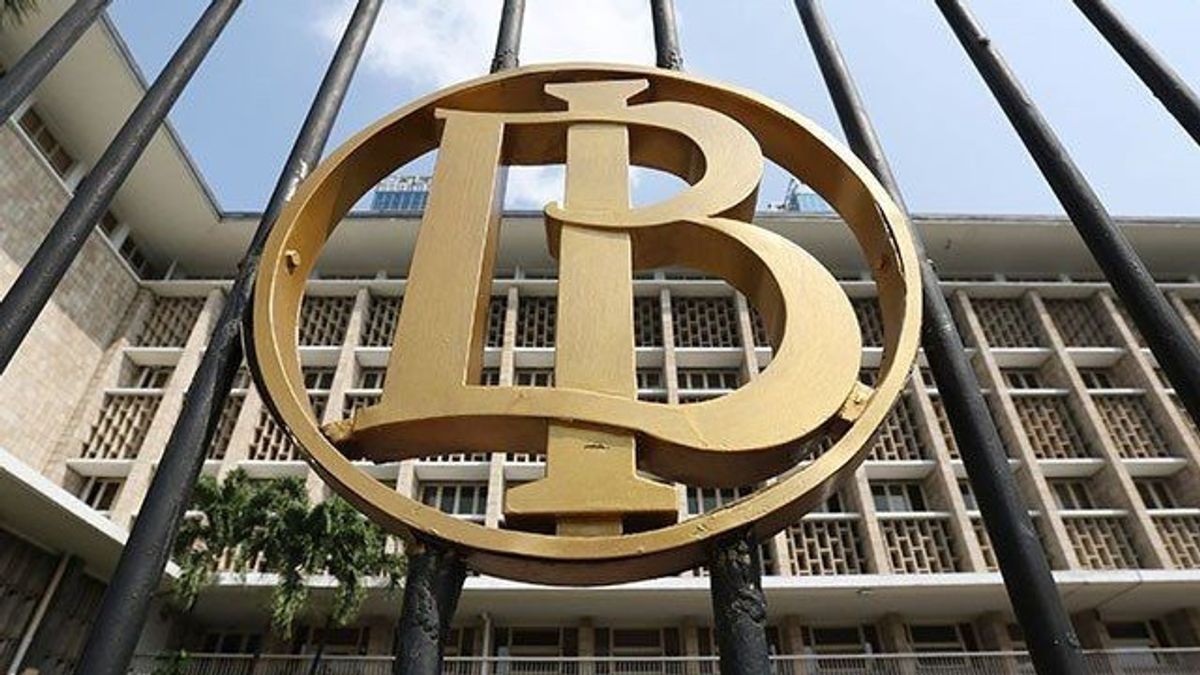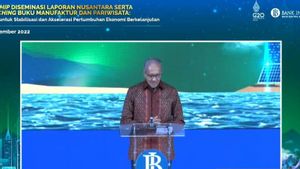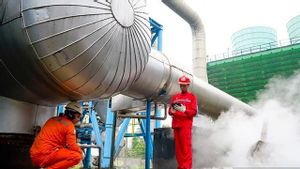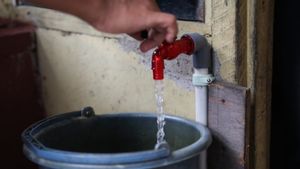JAKARTA - Bank Indonesia (BI) reported that Indonesia's current account balance in the third quarter of 2022 recorded a surplus of US$4.4 billion or 1.3 percent of Gross Domestic Product (GDP). This figure is higher than the previous quarter's achievement of US$4 billion or 1.2 percent of GDP.
The improvement in current account performance stemmed from an increase in the non-oil and gas trade balance surplus in line with persistently strong export demand from trading partner countries and high global commodity prices, as well as a reduced oil and gas trade balance deficit in line with the decline in world oil prices.
"The current account performance in the third quarter of 2022 is increasingly solid by continuing the trend of increasing the surplus, supported by the stronger performance of non-oil and gas exports", said BI Communications Department Executive Director, Erwin Haryono, in an official statement quoted by Antara, Friday, November 18.
Thus, the current account balance can withstand pressure on Indonesia's Balance of Payments (BOP) due to pressures on capital and financial transactions, in line with increasing uncertainty in global financial markets.
The BOP in the third quarter of this year recorded a deficit of 1.3 billion US dollars, with the position of foreign exchange reserves at the end of September 2022 recorded at 130.8 billion US dollars or equivalent to 5.7 months of imports and government foreign debt financing, and is in the top international adequacy standards.
SEE ALSO:
Capital and financial account pressures were reflected in a deficit of USD 6.1 billion or 1.8 percent of GDP, higher than the deficit of USD 1.2 billion or 0.3 percent of GDP in the second quarter of this year. However, the performance of this transaction can still be supported by direct investment in the midst of increasing uncertainty in global financial markets.
Foreign direct investment recorded a surplus that remained high in line with investor optimism about the prospects for economic improvement and a maintained domestic investment climate. Meanwhile, net outflows of portfolio investment increased due to heightened uncertainty in global financial markets and the need to repay maturing private debt securities.
Other investment transactions also recorded an increase in the deficit due to an increase in private assets, especially those related to business operations.
Going forward, BI will continue to monitor the dynamics of the global economy that may affect the outlook for the balance of payments and continue to strengthen the policy mix supported by close policy coordination with the government and relevant authorities to strengthen external sector resilience.
The English, Chinese, Japanese, Arabic, and French versions are automatically generated by the AI. So there may still be inaccuracies in translating, please always see Indonesian as our main language. (system supported by DigitalSiber.id)














